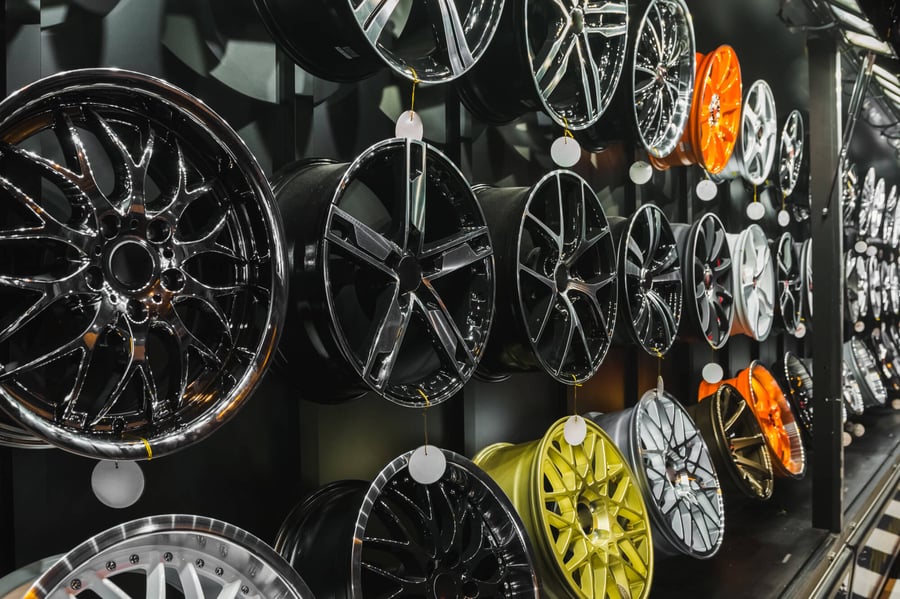 Sales for truck and sport/utility wheels has been on a steady rise in recent years. As of 2017, truck wheel sales were up at least 30%.
Sales for truck and sport/utility wheels has been on a steady rise in recent years. As of 2017, truck wheel sales were up at least 30%.
The question is, are you one of those truck lovers looking to purchase just the right set of wheels for your favorite vehicle?
Steel vs. alloy wheels has long been a question for truck drivers. Until today.
Let’s put this question to rest with this simple breakdown of the advantages of each wheel type so you can make the best choice for your needs.
Steel vs. Alloy Wheels
If you are an avid truck fan (and we’re betting you are if you’re reading this blog), then you may be willing to pay a bit more for the right set of wheels.
While there are several materials you could choose from including carbon fiber and others, steel and alloy are generally the most common. The biggest difference between the two main types of wheel is in their strength and durability.
Pros: Alloy Wheels
If you like things fast, these lightweight wheels are your ticket. Because alloy wheels are made of lighter materials like aluminum, nickel, magnesium, or a combo of these, alloy wheels are slightly faster.
You can accelerate more quickly with alloy than less flexible steel wheels.
Because alloy wheels average about 7 pounds less in weight than steel wheels, breaking and stopping suddenly is also easier.
When you are driving in extreme conditions, these lightweight wheels offer further advantages. Because of their makeup, they put slightly less pressure on your suspension parts than a standard steel wheel.
Often, alloy wheels can prevent too much heat generated near your brakes than steel wheels.
For those most interested in the aesthetics of their wheels, alloy wheels may also be the better choice for custom designs. The light metal is more easily shaped and molded into interesting designs and patterns.
Pros: Steel Wheels
Ah, steel. It’s probably the most common material for wheels for a reason. It’s dependable. It’s strong.
Steel wheels are a good deal less costly to make and buy. They give your wallet more of a break than fancy alloy wheels.
Just as steel wheels are easier to produce in the first place, so they are easier to repair and hammer back into place when bent or damaged. Because of their strength and durability, steel wheels often perform better under crash tests or accidents.
Steel wheels are less likely than alloy to bend, snap, or crack when faced with trauma or great force seen in car accidents or collisions.
As far as durability, cost, and strength go, steel should be your wheel of choice.
More Truck Choices
Deciding between steel vs. alloy wheels is just the beginning of your truck fun. There are countless customizing and accessory options to pick from.
For more ideas on how to build the perfect truck to suit all your needs, check out our blog post on the pros and cons of adding a lift kit to your vehicle. Safe driving!
